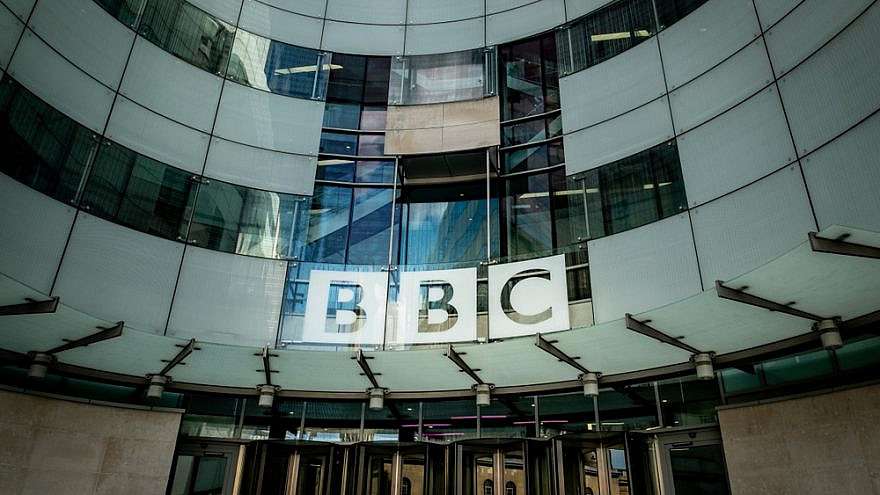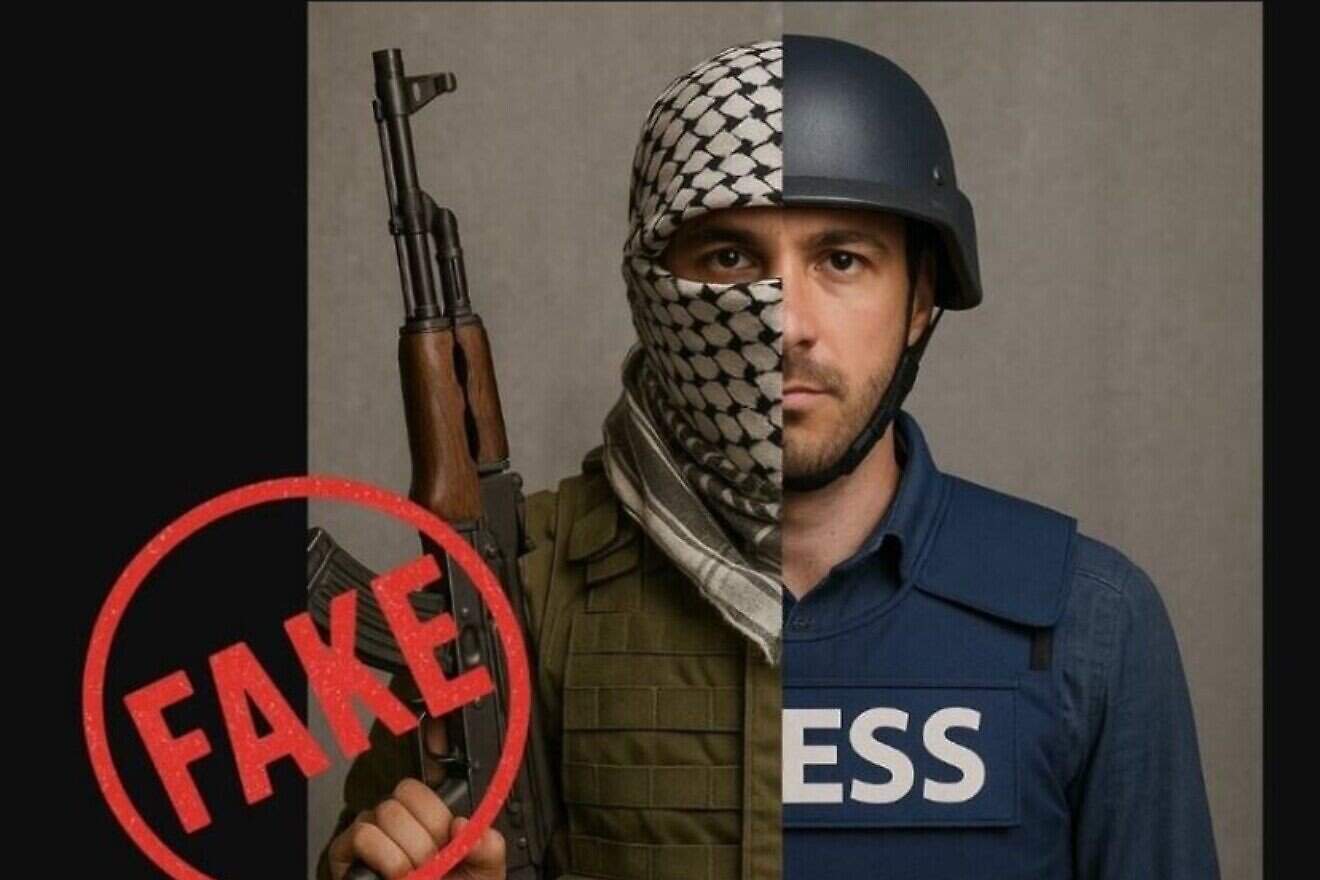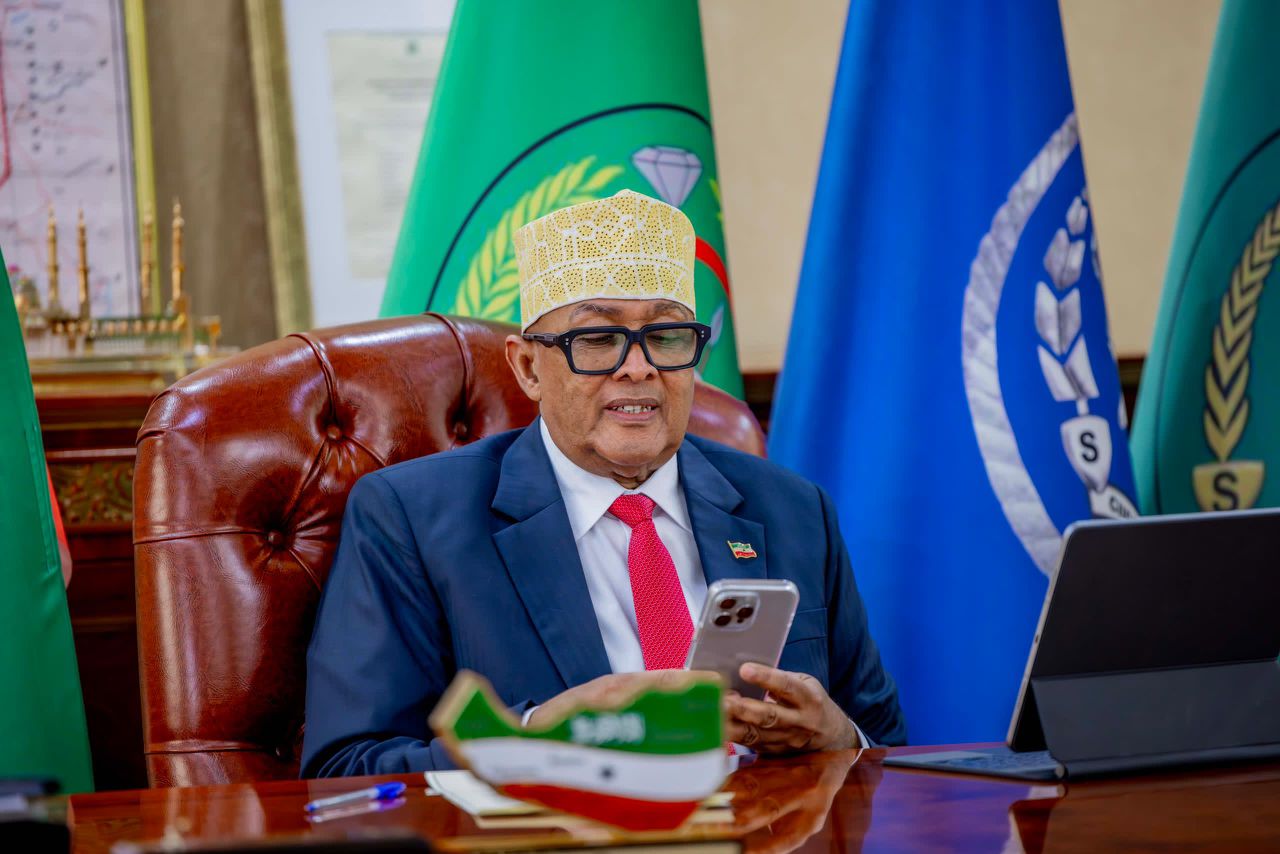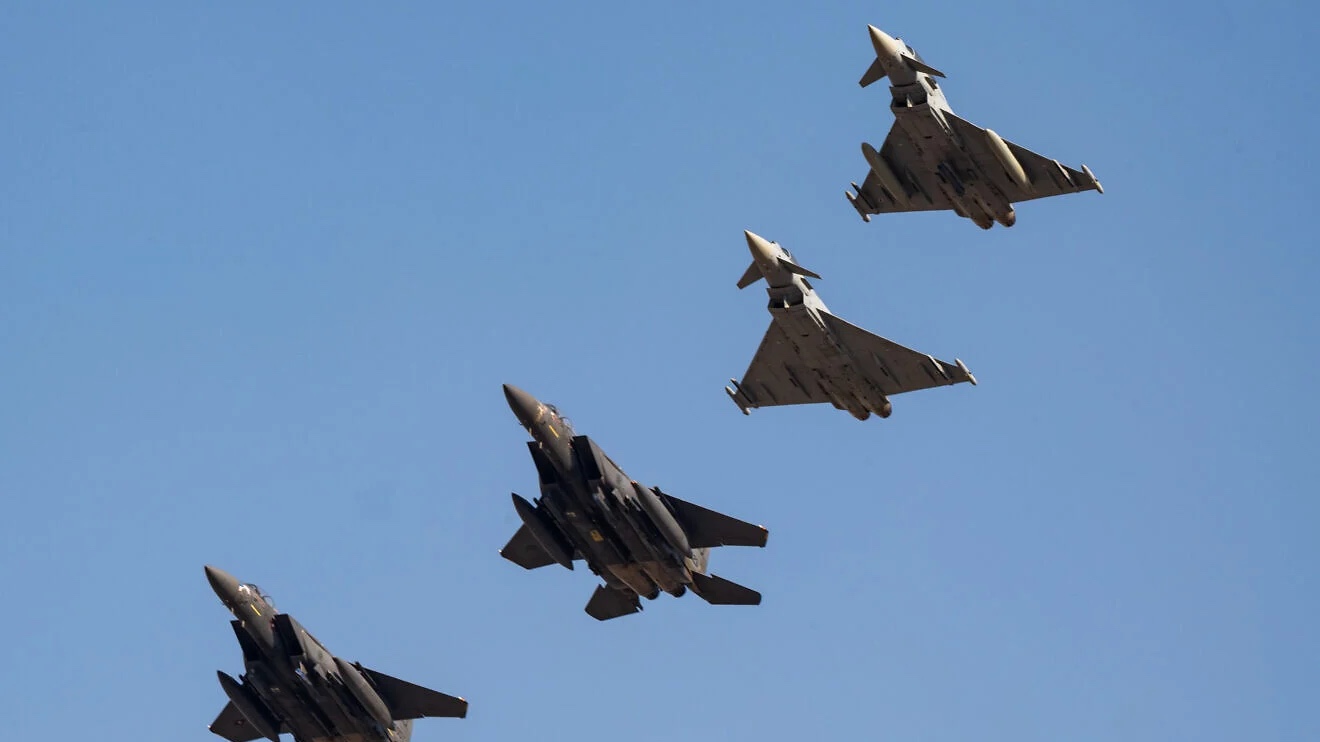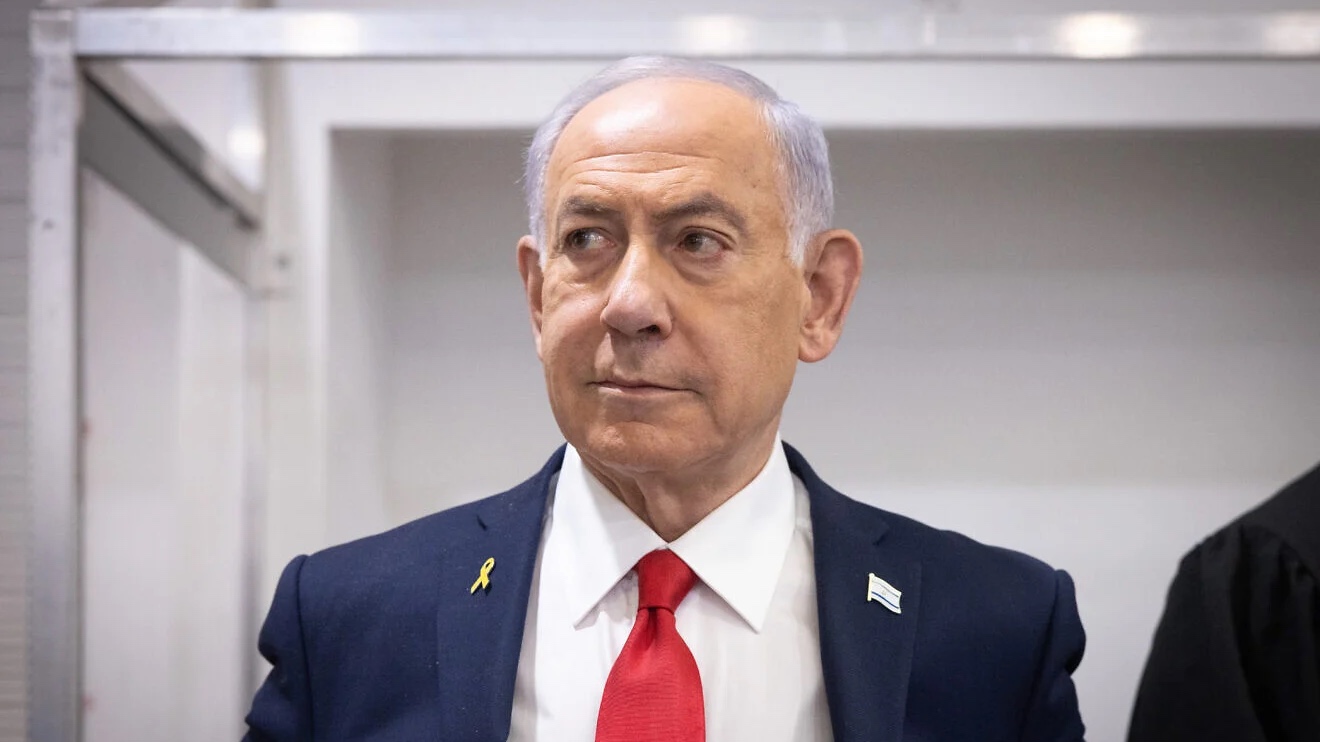(JNS) The world recently received an illuminating lesson from President Donald Trump on properly handling the abuse of journalistic power. His decision to sue the British Broadcasting Corporation for massive sums, over the intentional “cooking” of videos that falsely distorted a speech of his and presented it as a call to violence, had an immediate effect.
BBC officials, who were accustomed to dismissing any criticism when caught lying and fabricating, trembled this time. They rushed to admit the fabrication and sent Trump a frantic apology letter. Trump will likely not settle for that. Someone needs to teach the propaganda machine, which was once the world’s most trusted broadcasting body, a real lesson.
Trump’s decision to sue the BBC followed the publication of a detailed secret memo written by Michael Prescott, the establishment’s man who oversaw the BBC over the past three years and served as an independent consultant to the committee responsible for its journalistic standards. Prescott composed the memo after three years of despair, witnessing the network’s refusal to genuinely address consistent coverage bias in four different but related areas—Trump, race issues, gender matters, and the war in Gaza.
In fact, Prescott documented what any fair-minded person would understand if they watched the network’s broadcasts, listened to its radio programs, or browsed one of its many websites, all maintained in multiple languages. The BBC operates as a propaganda channel enslaved to far-left agendas. This is not about one-time “mistakes” or random lapses in judgment but rather consistent, systematic, and deliberate policy, even if not explicitly formulated, to turn the BBC into a propaganda tool.
The findings of Prescott’s memo were so clear, and Trump’s threat so tangible, that this time even BBC leadership, usually accustomed to arrogantly ignoring everything alleged against them and pretending everything is fine, could not maintain a facade of business as usual. Tim Davie, BBC CEO, and Deborah Turness, the corporation’s director of news and current affairs, resigned immediately, but it’s doubtful this will change anything. The nature of the rot gripping the BBC can no longer be hidden, and it’s highly doubtful whether it can be healed.
See related: BBC apologizes for ‘flawed’ Gaza documentary
“Jews are Satan, not human”
Regarding Israel coverage, the BBC‘s methods recall the worst antisemites. It’s stunning that the organization’s leaders are not really ashamed of this. Jonathan Munro, who served since September 2024 as the BBC‘s global news director (and as Turness’s deputy), was so proud of BBC Arabic’s achievements that he defined it as “nearly as credible as Al-Jazeera.” You read that right—the man who influences Britain’s and the entire world’s news coverage character more than others, views the Qatari propaganda enterprise as the desired standard. No wonder Munro’s supporters are already promoting his candidacy for the corporation’s next CEO position.
Even voices within the corporation admit that BBC Arabic broadcasts, which were subordinate to Munro, are considered, and justly so, the most problematic, making English-language broadcasts appear relatively moderate. In less polite language, BBC Arabic whitewashes Hamas.
Where else can viewers eagerly absorb the worldview of people like Ahmed Algaha, who called Jews “Satan” and explained they are “not human,” or like Samar Alzonan, who shared with followers the need “to burn the Jews, as Hitler did?” Algaha appeared on BBC Arabic 522 times. Alzonan received the platform 244 times. They are the current faces of the BBC.
Propaganda methods don’t end with choosing speakers and commentators. Word and term selection is no less effective in achieving the dual goal of blackening Israel and whitewashing those who desire to destroy it. The Jaffa light rail station terrorist attack, during which Arab terrorists murdered seven people and wounded 15 others, was called a “military operation” in BBC Arabic reports. IDF military operations are presented, in contrast, as genocide and war crimes.
The 12 Druze children killed by Hezbollah’s missile strike on the soccer field in Majdal Shams on the Golan Heights completely “disappeared” from the report about the barrage broadcast on BBC Arabic. The next day, the propagandists went even further in serving Hezbollah and claimed Israel perhaps even staged the strike.
See: BBC to investigate Arabic channel over Gaza coverage
The situation in BBC broadcasts in other languages is not much different. The propaganda methods are the same, perhaps only the degree of brazenness is lower. Israel’s demonization has penetrated all systems and taken over its organizational culture, claims N., who has worked at the BBC for 20 years and requests anonymity, fearing she will be swallowed up.
In March 2024, she recounts, she received a frantic call from her direct manager. She was then on sick leave, but he urgently demanded she contact him without delay. What was so urgent? The manager presented N. with a screenshot of her Facebook account, showing the post she uploaded immediately when she learned about the Hamas onslaught on Israel on Oct. 7, 2023. The post in question was graphic—a drawing of a tear in the corner of an eye, with the Israeli flag on it.
“The post didn’t call for violence, didn’t call for revenge over the massacre—only participation in the human grief of the Israeli massacre victims, but the manager demanded I remove it immediately,” N. recalled. “I was shocked. Since when is it forbidden for a journalist to cry with innocent victims? I responded that I wasn’t violating any editorial guidelines, but he stood his ground and demanded I delete the post.” The brazen demand conveyed a clear message—under no circumstances identify with the massacre victims. N. didn’t want to surrender, but was forced to block the post.
Shortly afterward, N. encountered a post by her work colleague, a BBC journalist of Syrian origin, who published her photo demonstrating with a PLO flag in hand. “I was outraged and approached the manager asking why I’m forbidden from expressing grief and mourning over Israeli massacre victims, but she’s allowed to wave a PLO flag, and no one from the editorial hierarchy asks her to remove the post. How is it that the policy is completely different in the two cases? Of course, I received no answer.”
The “objective” journalist’s post and her photo with a terror organization flag in hand have not been removed to this day. “It turns out everything began with a public storm after it was discovered that many employees in the Arabic department published and shared praise for the massacre,” N. added. No measures were taken against them.
What is terror?
Speaking of terror, you can find this term in the BBC‘s news coverage, but only as long as it’s not about Israeli victims. Remember the terrorist attack at the bus station at Ramot Junction in Jerusalem, which claimed the lives of six Israeli citizens? N. remembers that day well—she reported for her shift at 2:00 p.m. and couldn’t believe her eyes when she saw the headline given to the report about the horrific act.
The headline was “Shooting in east Jerusalem.” Not a terrorist attack, not a terror attack, and no mention of the shooters’ identity—just shooting, so that the innocent reader, the one who sometimes settles for only reading headlines, wouldn’t understand that once again Arabs murdered Jews.
“BBC‘s declared policy is indeed not to call a specific person a ‘terrorist’ as long as he hasn’t been convicted of a terror act by a court,” N said. “But we, of course, use the term ‘terror.’ We use it to describe the attacks in Paris, marking exactly a year since their occurrence. We use it to discuss the Sept. 11 attacks in the US. Only in one context are we forbidden from using the term ‘terror’ – when it’s an act by Arabs against Israelis.”
N.’s testimony is shocking. Her superiors censor news reports, whitewash the terrorists’ most horrific acts, and seek to shape readers’ and viewers’ consciousness—all this through deliberate word choice and avoidance of using terms that present PLO, Hamas, and Palestinian Islamic Jihad murderers in their true light.
According to N., the bias against Trump was also blatant and systematic throughout. “Generally, the editorial line was very clear both in numbers and in the degree of sympathy,” N. summarized. “There were nine stories about Kamala Harris and two stories about Donald Trump – both negative.”
A., a veteran journalist who refused to toe the line and was fired in December 2024, chose the hard path of confronting the BBC in court. A. is willing to reveal he worked on the network’s Russian-language broadcasts and was considered an asset to the department, but then new winds began to blow, winds of propaganda. His firing was explained by “the need for cutbacks,” except remarkably, according to him, everyone who was cut due to the downsizing belonged to the demonization resisters: journalists who refused to demonize Israel, refused to demonize Trump, and refused to demonize right-wing views in general.
“Jenny Norton, the manager of the Russian broadcast, conveyed the message that everything revolves around the suffering of Gaza’s residents, and that the guilty parties are the IDF and Netanyahu. As a result, a clear bias was created, and a very clear attitude: for every story or two about suffering on the Israeli side, there are ten stories about suffering on the Gazan side,” A. testified.
The sacred “balance”
One of the BBC‘s effective methods for instilling anti-Israel consciousness was tied to the decision to add an editorial addendum to every story about the Gaza war. A. was shocked to discover that the dictated text of the addendum included mention of “Palestine.” He and several colleagues rebelled and demanded to avoid it, since, after all, such an entity doesn’t actually exist. None of the rebels still works at the BBC.
As time passed, the resentment of several veteran employees was completely silenced. The crimes of the Gaza terrorists disappeared. Whenever there was no choice but to report the torture that Israeli hostages endured in Hamas’s underground prisons, a special effort was made to “balance” the report with fabricated claims about “terrorists being tortured” in Israeli prisons.
The number of Gazan casualties was reported based on Hamas sources, without explaining what the “Gaza Health Ministry” is or how reliable it might be. The pattern repeated itself again and again: accusations against Israel were aired and spread without verification or reservations, while any information that could portray Hamas and its actions negatively was buried, minimized, or distorted.
See: UN, BBC walk back Gaza infant death toll claim
A. revealed, “By contrast, when we quoted [Israeli] Prime Minister [Benjamin] Netanyahu, editors immediately remarked that we were citing him too often and demanded a special editorial note stating that ‘the BBC has no way to verify the statement.’ This disclaimer is reserved at the BBC only for Israel’s prime minister, and perhaps for Russian officials. When quoting the British prime minister or any other world leader, no one would dream of adding a note undermining the credibility of their words.”
Did none of the journalists dare to question this discriminatory directive? “They were told that ‘Netanyahu is a controversial figure,’ as if he were the only political leader who provokes controversy, as if the British prime minister were not himself controversial. The BBC managers have mastered the art of answering without giving an answer. They created an atmosphere in which anyone who asks questions quickly finds themselves out of the newsroom—just like me.”
The BBC did not respond to Israel Hayom’s request for comment.
Originally published by Israel Hayom.


